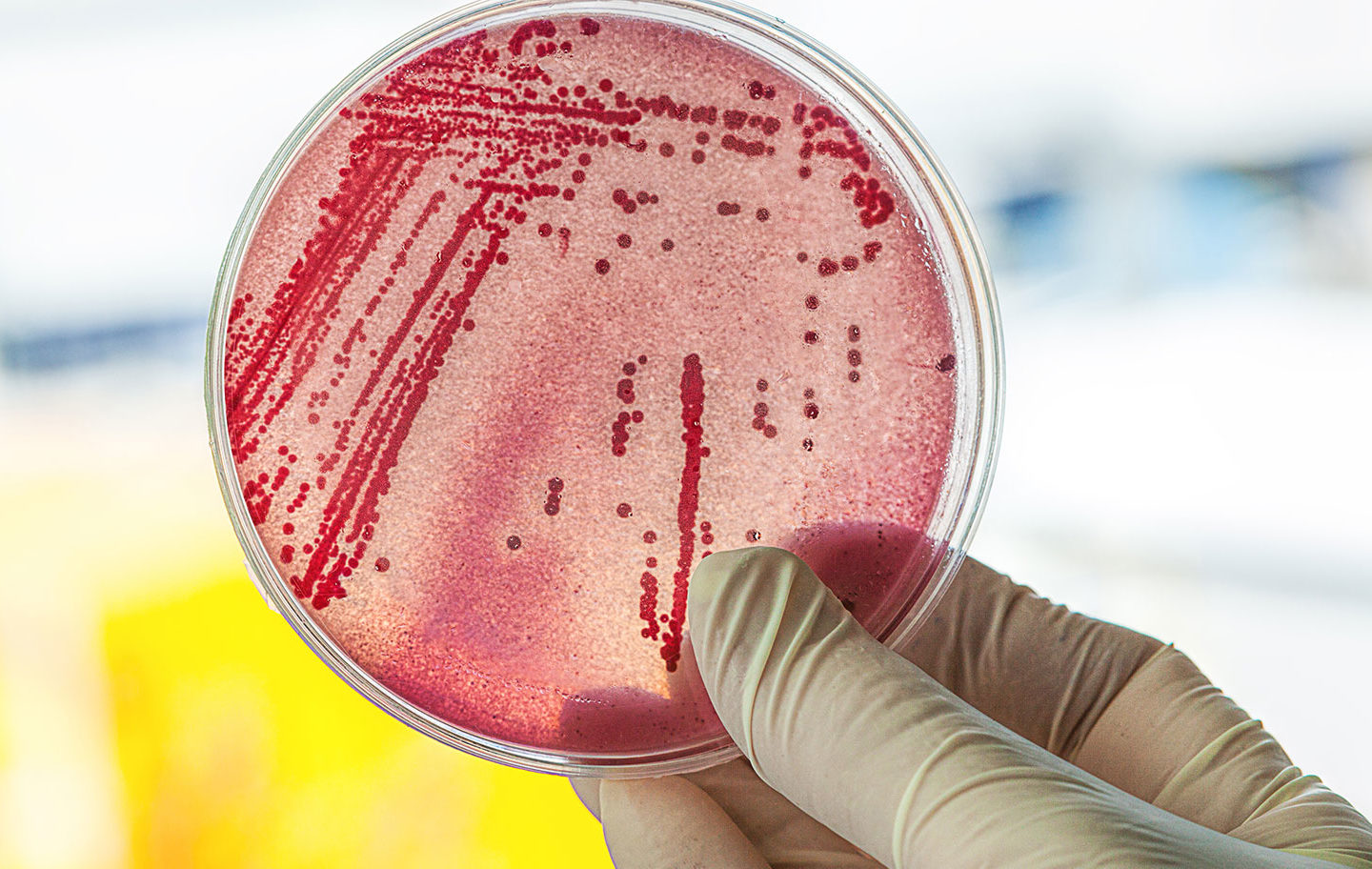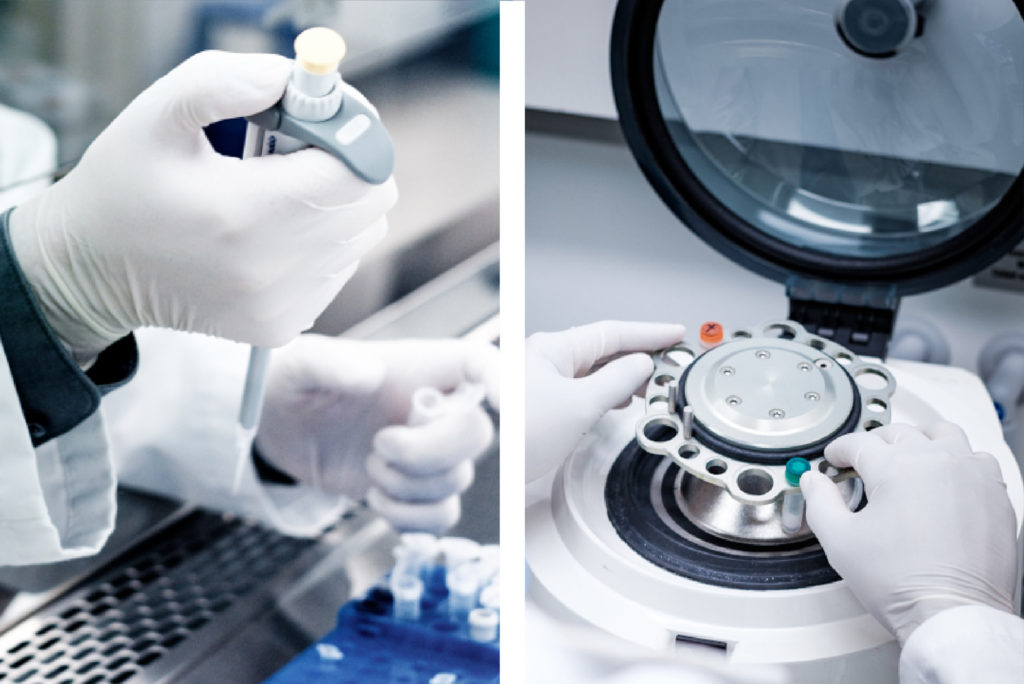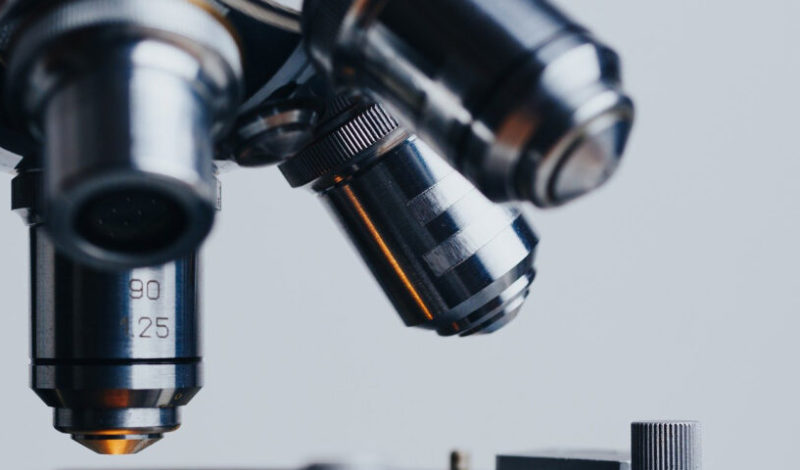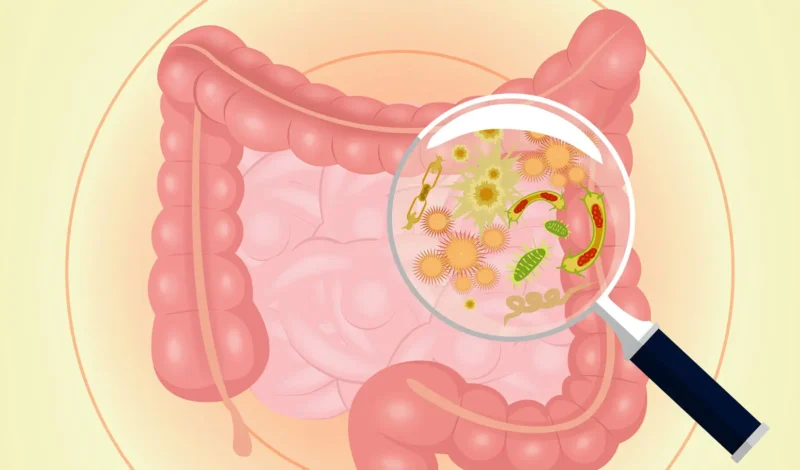Your stomach sometimes feels unpleasantly bloated or very hard after eating or in the morning? You are not alone with [...]

E. coli bacteria: That’s what they do in the intestines
What are E. coli bacteria?
E. coli bacteria – or simply E. coli bacteria – are considered to be the trigger of numerous diseases of the gastrointestinal tract. Many epidemic infections are caused by one of the numerous E. coli bacterial strains. But there are also good bacterial strains of the genus E. coli: in the intestine, various coli bacteria namely fulfil important functions for the metabolism. How dangerous Escherichia coli actually is, which diseases can occur and which tasks this bacterial species takes over in the intestinal flora, you can find out here.
E. coli or Escherichia coli is a type of bacteria that occurs naturally in the intestine. The bacterial strain was named after its discoverer, the German pediatrician Theodor Escherich. As a natural bacterium in the intestinal tract of humans, other mammals and birds most E. coli bacteria are harmless.However, there are also strains of bacteria that are pathogenic, i.e. disease-causing, and can lead to bacterial infections. If there are apathogenic (non-pathogenic) E. coli bacteria in the intestine, this is not of further concern. Pathogenic species, on the other hand, are dangerous to health: if they reach other parts of the body outside the intestine, the risk of infection or disease is increased.
Are E. coli bacteria in the gut dangerous?
Many people are afraid of catching a gastro-intestinal infection in hospitals, public toilets or on the train, for example. E. coli bacteria are often the cause of such infections. It is not without reason that bacterial strains of the genus Escherichia are often referred to as faecal bacteria. This name is not wrong. Nevertheless, it does not do justice to this intestinal bacterium. After all, there is a large number of E. coli bacteria in the human intestine which are harmless and do not cause diseases.
E. coli even proves its usefulness in the intestinal flora as a vitamin producer. Thus E. coli bacteria make a valuable contribution to the formation of various B vitamins and vitamin K. In addition, some strains support the breakdown of nutrients such as proteins and carbohydrates. Nevertheless, E. coli is rather underrepresented in the intestine compared to other intestinal bacteria. Only about one percent of your gut flora microbiota consists of coli bacteria.
Intestinal bacteria such as the Bacteroidetes and Firmicutes are significantly more common. In general: If the bacterial balance in your intestinal flora is in equilibrium, most E. coli bacteria cannot harm you.
However, despite all the positive effects that E. coli has on your intestines, a general awareness of the bacterium is not wrong. Pathogenic E. coli bacteria can be the cause of many diseases, some of them serious, and have already caused some serious epidemics in the past.

Where do E. coli bacteria occur?
E. coli bacteria are one of the most common causes of disease and they are widespread: On the one hand, E. coli bacteria often occur in places with lack of hygiene – especially toilets – and are spread from there. On the other hand, the germ also hides in foods such as raw meat, dairy products and fruit and vegetables.
In areas of the world where hygiene standards are low, E. coli bacteria can even be found in drinking water. In this country, the limit value for E. coli in drinking water is zero bacteria per 100 millilitres of water. This value must be strictly observed. In bathing water, however, the EU Bathing Water Regulation allows up to 500 bacteria in 100 millilitres ( water with excellent quality) or 1,000 bacteria per 100 millilitres of water (water with good quality).
Which pathogenic strains of E. coli are there?
Most of the E. coli bacteria found in the intestine do not cause disease. However, if you are infected by a smear infection or if bacteria reach other organs, the risk of disease is high. Pathogenic strains penetrate the intestinal wall, produce toxic substances there and can lead to more or less severe intestinal diseases. A total of five groups of pathogenic strains can be distinguished.
Enterohaemorrhagic E. coli bacteria produce, among other things, shigatoxin, they cause bloody diarrhoea and can even lead to kidney failure. They are often the cause of food poisoning.
Enteropathogenic strains can cause severe diarrhoea, especially in children. In emerging and third world countries, they are the cause of many child deaths.
Enterotoxic bacteria are the most common cause of travel diarrhoea.
Enteroinvasive strains can cause bloody diarrhea with fever. In weaker representatives of this type the symptoms are less pronounced.
Enteroaggregative E. coli bacteria are the cause of long-lasting or even chronic diarrhoea. Bacteria of this type cause fever, vomiting and can lead to bacterial enteritis (intestinal catarrh) if the immune system is weak.
What symptoms can pathogenic strains cause?
An infection with a pathogenic strain can lead to partly unpleasant symptoms depending on the disease. Depending on the bacterial strain, the intensity of the symptoms can also vary, so that some diseases are more severe than others. Therefore, especially people with a immune deficiency as well as pregnant women and the elderly should be careful. Infants and young children are also at risk of getting an infection that can have serious consequences. The most common symptoms include:
- Nausea and stomach ache
- Vomiting
- Diarrhea
- Urinary tract infections
- Inflammation of the stomach mucous membranes
- Fever
With particularly aggressive E. coli bacteria, such as EHEC, the symptoms can be very severe and even lead to kidney failure.
- Sources:
- Gesundheit: So lösen E.coli-Bakterien Entzündungen aus – Gesundheit – Ratgeber – Tagesspiegel
- Eckburg PB, Bik EM, Bernstein CN, Purdom E, Dethlefsen L, Sargent M, Gill SR, Nelson KE, Relman DA. (2005) Diversity of the human intestinal microbial flora. Science ;308(5728):1635-8. doi: 10.1126/science.1110591
- Steinmüller, Dr. Rolf. (2010) „Escherichia coli“. Ernährungsumschau, Bd. Ernährungs Umschau, Nr. 7/10, S. B13–28, www.ernaehrungs-umschau.de/fileadmin/Ernaehrungs-Umschau/pdfs/pdf_2010/07_10/EU07_2010_B25_B28.qxd.pdf.
- Sartor RB. (2008) Microbial influences in inflammatory bowel diseases. Gastroenterology. 134(2):577-94. doi: 10.1053/j.gastro.2007.11.059



